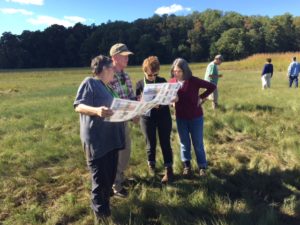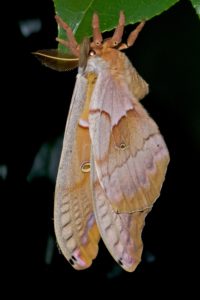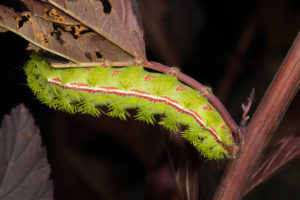CURIOUS? BECOME A VIRGINIA MASTER NATURALIST

Learning about wetlands. Photo by Jennifer Trevino.
People who are curious about nature, enjoy the outdoors, and want to volunteer in stewardship, outreach, and citizen science projects supporting natural resource management and conservation in Virginia are perfect candidates to become Virginia Master Naturalists.
APPLICATION INFORMATION
June 1, 2025
Our next Basic Training class begins September 10, 2025, and continues through March 12, 2026, with graduation. Here is a Frequently Asked Questions (FAQ) document in PDF that is intended to answer many of your questions about the upcoming Basic Training session.
The application for 2025-2026 Historic Rivers Chapter Basic Training is now available. You can access it on a site called Better Impact at this link:
OR

This link will be “live” until June 30 or until the class is filled. We encourage you to apply early – we have more people interested than we have space for.
- Prepare to devote approximately one hour to completing the online application. It must be completed in one sitting. You will not be able to save your responses to return later.
- When you open the Better Impact link, you’ll have to enter a username and password. If you’re accepted into Basic Training, you will use these login credentials. Of course, they can be changed later if necessary or if you request.
- The fee for the 2025-2026 class is $175. To pay via PayPal, visit https://www.
historicrivers.org/payment/ - You can pay by check also. Send check for $175 payable to HRC to PO Box 5026, Williamsburg, VA 23188
We encourage you to carefully review this FAQ document to determine if this program is right for you and if you want to apply.
Questions? Contact Shirley Devan at shirley_devan@icloud.com

Polyphemus Moth. Photo by Mike Powell
HISTORIC RIVERS BASIC TRAINING
Basic training covers the background knowledge and skills that every naturalist needs to have. We tailor our course to fit our local environment and community.
The Historic Rivers Chapter Virginia Master Naturalist’s training includes:
- Introduction to Virginia Master Naturalist Program
- Risk Management
- Building Master Naturalist Skills
- Biodiversity and Evolution
- Virginia Geology and Biogeography
- Ecology Concepts
- Climate & Weather
- Forest Conservation
- American Naturalists
- Dendrology
- Botany and Native Plants
- Wetlands Ecology
- Entomology
- Freshwater Ecology and Macroinvertebrates
- Butterflies
- Ichthyology
- Herpetology
- Ornithology
- Mammalogy

Io Moth Caterpillar. Photo by Susan Powell
Virginia Cooperative Extension is a partnership of Virginia Tech, Virginia State University, the U.S. Department of Agriculture, and local governments. Its programs and employment are open to all, regardless of age, color, disability, sex (including pregnancy), gender, gender identity, gender expression, national origin, political affiliation, race, religion, sexual orientation, genetic information, military status, or any other basis protected by law.
